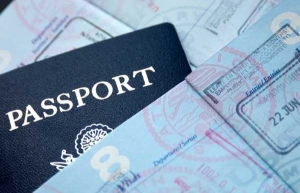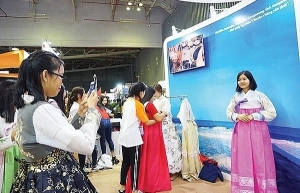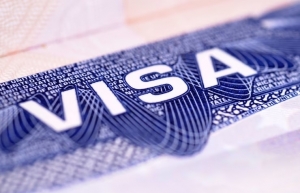Vietnam should expand visa policy to welcome growth
Could you shed some light on the visa openness of other countries in the region?
 |
| Pham Hong Long, dean of Tourism Studies at the University of Social Sciences and Humanities in Hanoi |
Back in 1996, Malaysia launched a programme to attract retired people with a 10-year visa. Last year, the initiative was renamed My Second Home and now targets anyone 21 years old and above.
Malaysia has also introduced a premium visa initiative to attract wealthy foreigners to invest and reside in the country for a period of 20 years. In addition, it currently grants visa exemption to 162 countries. Thanks to its open visa policy, the country received over 7 million tourist arrivals in 2022, double the figure of Vietnam.
Elsewhere, Thailand has extended stays to 45 days for citizens from 65 countries, while the Philippines grants visa exemption for 157 countries.
Singapore is also known for its attractive visa policies. Citizens from 162 countries are entitled for visa exemption there and they can apply for an e-visa quickly with one or multiple entries over two years. Foreign tourists can stay in Singapore for 90 days and extend their stay for more.
Most recently, Singapore has offered a new five-year visa programme targeting elite talent. As a result, it has witnessed a 30 per cent increase in its tourism recovery, while this figure is only 18 per cent in Vietnam.
What improvements in visa openness can Vietnam make?
Only 24 countries are exempt from visas when travelling to Vietnam. The country also grants e-visas to 80 countries, but only 34 border gates allow international tourists to enter with an e-visa. Many tourists want to visit Vietnam for 21 days, but we only offer a 15-day visa and one entry. Thus, they have shortened their stay in Vietnam by a week and this is a barrier for tourism advances.
It is the right time for Vietnam to adjust its visa policy. We need to expand the list of visa-free countries, extend the visa period to 30-45 days, and allow multiple entry. Also, Vietnam can increase the stay period of up to three months for citizens from high-spending markets such as Germany, Italy, Switzerland, and Scandinavia. At the same time, the issuance of e-visas should be extended to all countries with a simpler, faster, and more user-friendly system.
Do you see progress in Vietnam’s visa policy?
Tourism to Vietnam was booming before the pandemic, but it also retains some weaknesses in terms of international openness, tourism infrastructure, prioritisation of travel, and environmental sustainability.
Visa policy is critical as it serves as a checkpoint for travellers to determine whether a place is truly attractive or not. Additionally, it must be acknowledged that visa openness is a criterion in comparing a destination’s tourism potential and the ability to grow its tourism industry.
Improvements in visa openness will create a driving force for inbound tourism in Vietnam. The country can extend the stay period for visa holders from different countries. This means tourists will stay longer and spend more in the country, which is a double benefit for Vietnam’s tourism sector.
Besides visa policies, how can Vietnam further promote its tourism industry?
Vietnam should set up tourism representative offices in foreign countries. Our direct competitor, Thailand, has 29 representative offices overseas to promote tourism. Malaysia boasts 35 offices and Singapore has 23.
Some travel agencies in Vietnam have set up such offices abroad. However, there are no representative offices of the government to build trust with partners and tourists.
In addition, Vietnam only spends around $2 million on tourism promotion and marketing. This figure equals 2.9 per cent of Thailand’s tourism promotion budget and 1.9 per cent of Malaysia’s.
With such limited funds, Vietnam can only focus on high-potential markets like Europe, Southeast Asia, and India. The Tourism Development Support Fund, which was also launched last year, needs to work more actively and effectively.
The development of the nighttime economy is also vital to retain tourists and increase their spending.
 | Visa policy is keeping tourists at bay With tourism a key area for growth, Vietnam’s strict visa policy is a barrier that is making foreign tourists choose other destinations instead. |
 | South Korea to see more Vietnamese visitors with new visa policy South Korea’s new visa policy for Vietnamese citizens is expected to stimulate travel in the country, possibly doubling the number of Vietnamese visitors. |
 | New visa policy gives hand to delayed plans Restoring pre-pandemic visa policies should significantly contribute to the breakthrough of overseas investment in the country. |
 | More flexible visa policy finally on cards after multiple gripes Vietnam is gearing up efforts to ease its visa requirements to facilitate travel for citizens from more countries. |
What the stars mean:
★ Poor ★ ★ Promising ★★★ Good ★★★★ Very good ★★★★★ Exceptional
Related Contents
Latest News
More News
- Manila becomes a new check-in destination for Vietnamese youth (December 11, 2025 | 18:07)
- Vietjet launches mega year-end ticket promotion (December 10, 2025 | 11:33)
- Dalat leads Vietnam’s 2025 search trends (December 09, 2025 | 13:44)
- Vietnam welcomes record wave of international visitors (December 09, 2025 | 13:43)
- Vietjet launches daily Manila flights to celebrate year-end festive peak season (December 05, 2025 | 13:47)
- The destinations powering Vietnam’s festive season travel demand (December 04, 2025 | 18:33)
- Vietnam named among the world’s most exciting winter destinations (December 04, 2025 | 15:10)
- Phu Tho emerges as northern Vietnam’s new tourism hub (December 01, 2025 | 17:00)
- Vietjet completes Airbus A320/A321 updates ahead of deadline (December 01, 2025 | 09:49)
- Vietjet resumes Con Dao flights from early December (November 28, 2025 | 15:24)

 Tag:
Tag:



















 Mobile Version
Mobile Version